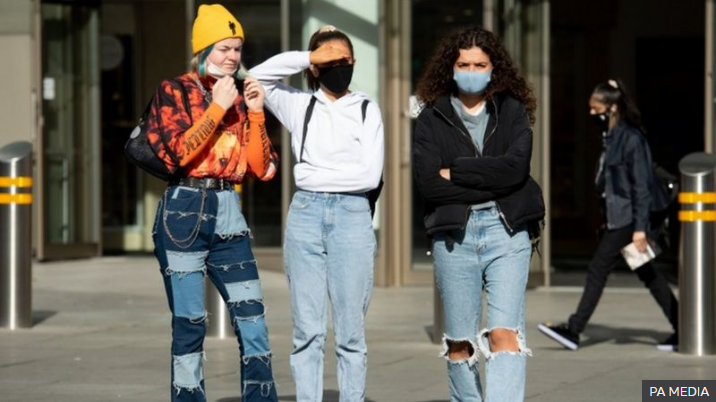InternationalNews
Coronavirus: Europe’s tough restrictions ‘absolutely necessary’

Tough restrictions are “absolutely necessary” to save lives, the World Health Organization (WHO) has warned as Europe battles a second Covid-19 wave.
It comes as millions of people in European capitals and other cities have been told they must live under strict new measures.
From Saturday, socialising indoors will be banned in London, UK, and a curfew will be imposed in nine French cities.
But the situation is not as bad as it was in March and April, the WHO says.
On Wednesday a partial four-week lockdown began in the Netherlands, while the Czech Republic is building its first field hospital for coronavirus patients.
Germany, the Czech Republic, and Catalonia in Spain have also imposed restrictions as infections soar and officials warn that hospitals are at risk of being overwhelmed.
Coronavirus is the fifth-leading cause of death in Europe, where a threshold of 1,000 deaths daily has been passed, the WHO’s European director, Dr Hans Kluge, told a press conference on Thursday.
“It’s time to step up. The message to governments is: don’t hold back with relatively small actions to avoid the painful damaging actions we saw in the first round,” he said.
Meanwhile, the European Commission has called on countries to step up their preparations, advising governments to co-ordinate contact tracing and the eventual deployment of vaccines.
Time is running out,” said Stella Kyriakides, European Commissioner for Health and Food Safety.
How bad is the situation in Europe?
Covid-19 deaths are currently five times lower than they were in March and April, when the first wave hit the continent, the WHO’s Dr Kluge said.
One reason for the increase in cases seen in recent weeks is more young people testing positive for the virus, he said, adding that the lower mortality rate was because that demographic is less likely to die from Covid-19 than older people.
But projections of the course of the disease in Europe were “not optimistic”, he explained.
If European governments relax their restrictions, the course of the virus indicates that by January 2021 the daily mortality rate will be four to five times higher than it was during April, Dr Kluge said.
But if 95% of people wear masks and other social distancing measures are applied, Europe could avoid about 281,000 deaths by February, he added.
He said that governments must consider mental health and domestic violence when imposing restrictions, and do everything possible to keep schools open.
The spread of the virus has been accelerating across Europe in recent weeks after infections began to rise in August and September.
The Czech Republic currently has the highest infection rate in Europe and cases have nearly doubled in October to reach a total of 139,290.
On Thursday Russia recorded its highest number of daily fatalities since the start of the epidemic with 286 people reported to have died from the virus.
Source:Fiilafmonline/BBC



